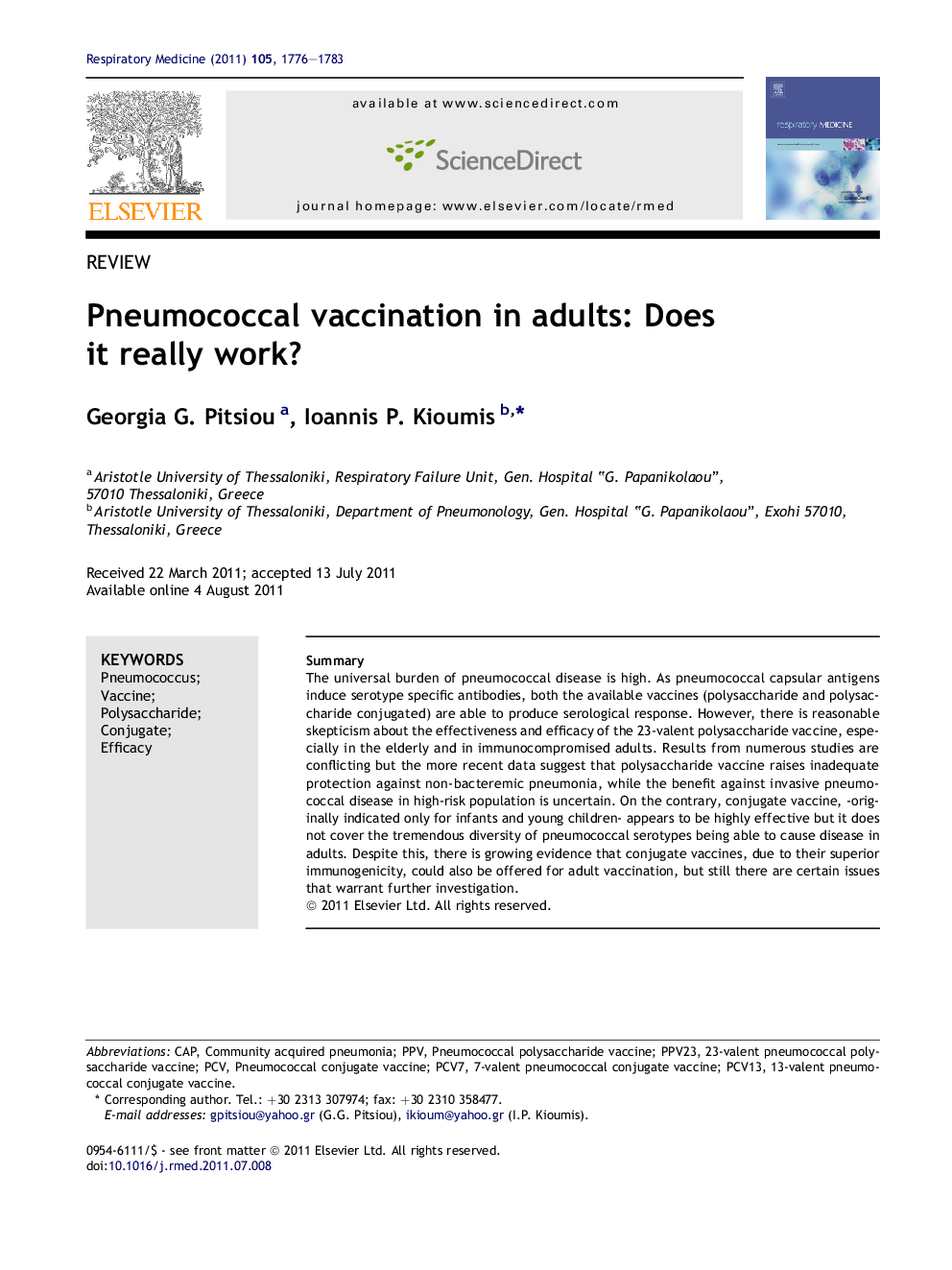| Article ID | Journal | Published Year | Pages | File Type |
|---|---|---|---|---|
| 6242073 | Respiratory Medicine | 2011 | 8 Pages |
Abstract
The universal burden of pneumococcal disease is high. As pneumococcal capsular antigens induce serotype specific antibodies, both the available vaccines (polysaccharide and polysaccharide conjugated) are able to produce serological response. However, there is reasonable skepticism about the effectiveness and efficacy of the 23-valent polysaccharide vaccine, especially in the elderly and in immunocompromised adults. Results from numerous studies are conflicting but the more recent data suggest that polysaccharide vaccine raises inadequate protection against non-bacteremic pneumonia, while the benefit against invasive pneumococcal disease in high-risk population is uncertain. On the contrary, conjugate vaccine, -originally indicated only for infants and young children- appears to be highly effective but it does not cover the tremendous diversity of pneumococcal serotypes being able to cause disease in adults. Despite this, there is growing evidence that conjugate vaccines, due to their superior immunogenicity, could also be offered for adult vaccination, but still there are certain issues that warrant further investigation.
Keywords
PCV7PPV23PCV13PPVEfficacyCommunity acquired pneumoniaConjugateVaccine7-valent pneumococcal conjugate vaccinePneumococcal conjugate vaccinePneumococcal polysaccharide vaccine23-Valent pneumococcal polysaccharide vaccine13-Valent pneumococcal conjugate vaccinePCV یا Pneumococcal conjugate vaccinePneumococcusPolysaccharideCaP
Related Topics
Health Sciences
Medicine and Dentistry
Pulmonary and Respiratory Medicine
Authors
Georgia G. Pitsiou, Ioannis P. Kioumis,
